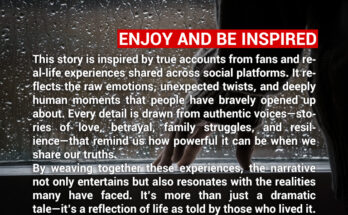My grandma was 50 when she found out the birthday she’d celebrated her entire life wasn’t the day she was born—and that the man she called Dad wasn’t her biological father. It started with an old diary. She and my mom were reading through my great-grandma’s journals, laughing at the mundane entries, when they reached the one dated on Grandma’s birthday. It said nothing about a birth—just a trip to the zoo. Confused, Grandma requested her birth certificate. When it arrived, the date was different. That day’s diary entry read only: “Oh to be a girl and not a boy.”
She sat in silence for a long time. I remember her hands trembling as she held the certificate. She wasn’t angry—just stunned. Her whole identity had been built on stories that suddenly felt like fiction. The man who raised her had loved her deeply, but now she wondered what else had been hidden.
She didn’t confront anyone. Most of the people who could explain were long gone. Instead, she grieved quietly. Not just for the truth, but for the years spent celebrating a day that wasn’t hers, and for the father she’d never known. It was like mourning a stranger she’d never met.
But something beautiful happened too. She began to reclaim her story. She started celebrating both birthdays—one for the life she lived, and one for the life she never knew. She said it made her feel whole, like honoring both versions of herself.
She told me once, “You don’t need the right date to know who you are. You just need the truth—and the courage to carry it.” I think about that every year when we light two candles instead of one.
Her story taught me that identity isn’t fixed. It’s layered, messy, and sometimes rewritten. But it’s ours to own, even when the pages surprise us.


